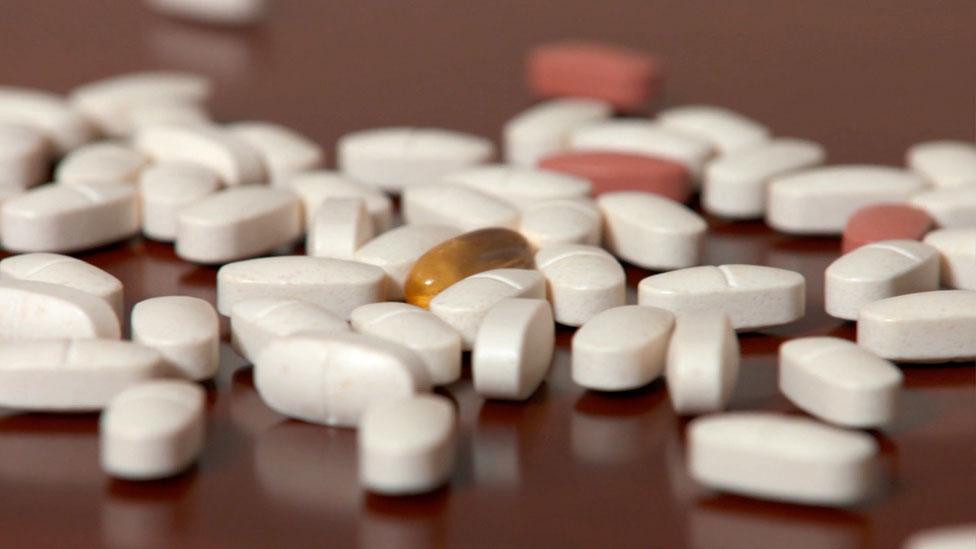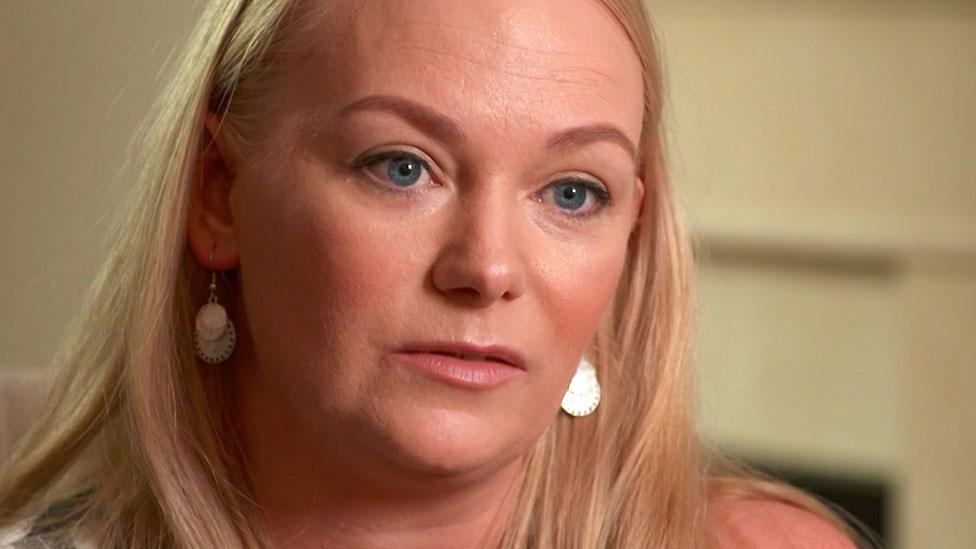MPs call for 'life-changing' Kuvan to be made affordable
- Published

A number of MPs are calling on a drug company to make a "life-changing" treatment affordable to UK patients.
Citing a BBC Newsnight report, MPs across several parties have written to BioMarin, which markets Kuvan but did not initially discover it.
The drug, which helps people who have PKU - a rare inherited disorder - is currently not available to NHS patients, as it costs £70,000.
BioMarin says the NHS has not accepted its "very competitive" offer.
People with PKU (phenylketonuria) - which affects between one in 10,000 and one in 14,000 people in England - cannot properly digest the amino acid phenylalanine.
Amino acids are the building blocks of protein and are broken down by the body to make our own proteins. But in people with PKU the levels build up, and can cause brain damage.
Kuvan reduces the levels of phenylalanine in many people who have PKU.
The MPs, who include Foreign Secretary Jeremy Hunt and shadow chancellor John McDonnell, say that BioMarin did not even discover the drug itself but licensed it from a laboratory in Switzerland. It was then researched, using public money, as a treatment for PKU.
"It seems likely that development costs associated with licensing this treatment have been recouped," the MPs said in their letter, adding: "It is matter of public record that BioMarin has generated substantial revenues from Kuvan."
Louise Moorhouse, 35, knows at first-hand the difference Kuvan can make.
In her early 20s she took part in trials while it was being developed by the US biotech company.
"Kuvan allowed me to eat a completely normal diet. It was almost like someone had opened curtains on my life and I could see everything in Technicolor," she told Newsnight.
"It just freed me up so much."
After the trial, Louise was denied further access to Kuvan, but since Newsnight's investigation, BioMarin has said all ex-trial patients will be treated.
PKU and Kuvan - the campaign for an affordable drug
However, in their letter, MPs say: "BioMarin currently has no competition for pharmacological treatments for PKU. This monopoly position carries a particular obligation to have regard to your responsibility to patients.
"BioMarin needs to prioritise making this treatment available at an appropriate price across the UK as soon as possible."
The letter, signed by 17 MPs so far and originated from the office of MP Liz Twist, comes amid growing concern about the prices of drugs for rare illnesses across Europe.
Under a European incentive scheme to encourage companies to produce treatments for so-called orphan diseases, companies are granted up to 12 years market exclusivity. This is currently under review.
The Dutch government, for example, is looking at issuing compulsory licenses if a company does not make a drug affordable. This means another company will be allowed to make the drug at a cheaper price, even when it doesn't hold the patent.
Allow X content?
This article contains content provided by X. We ask for your permission before anything is loaded, as they may be using cookies and other technologies. You may want to read X’s cookie policy, external and privacy policy, external before accepting. To view this content choose ‘accept and continue’.

BioMarin says the "burden and severity of PKU as a disease in the UK is not recognised by NICE or the NHS".
"Under current cost-effectiveness criteria, [the] NHS expects discount in the range of 80%, making it very difficult to reach a mutually acceptable agreement," the company said in a statement.
An NHS England spokesperson said: "The NHS does not offer a blank cheque to pharmaceutical companies. Instead, the NHS works hard to strike deals which give people access to the most clinically effective and innovative medicines, and at a price which is fair and affordable, which is exactly what our patients and the country's taxpayers would expect us to do."
You can watch Newsnight on BBC Two weekdays at 22:30 or on iPlayer, subscribe to the programme on YouTube, external and follow it on Twitter., external
- Published17 April 2019

- Published7 May 2019
